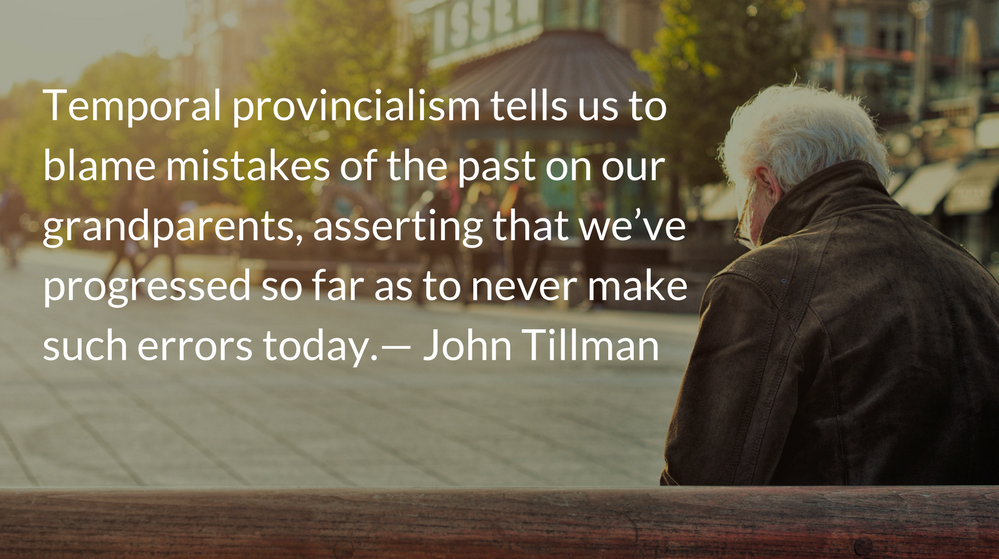Scripture Focus: Matthew 23.23
23 “Woe to you, teachers of the law and Pharisees, you hypocrites! You give a tenth of your spices—mint, dill and cumin. But you have neglected the more important matters of the law—justice, mercy and faithfulness. You should have practiced the latter, without neglecting the former.
Reflection: More Important Matters
By John Tillman
It has almost become too trendy to post about one’s struggles with “popular” mental health symptoms or diagnoses.
Culturally, we have always colloquialized medical language. When we are startled, we say, “You gave me a heart attack!” When someone loses their temper, we say, “They are having a stroke!” No one calls the ambulance. These uses are a normal part of our language. We also colloquialize medical language around mental health. Attention Deficit Hyperactivity Disorder, or ADHD was a controversial and misunderstood diagnosis at one time. Today, it is still not well-understood but it is one of the most common colloquially used mental health terms. We all face distractions and many publicly joke about our “ADHD brains,” whether or not we are actually medically diagnosed.
Distractions often come in the form of pursuing some activity that is less important to the neglect of something more important. Instead of doing schoolwork that’s due today, we fold laundry that could be done tomorrow. Instead of repairing the item we entered the workshop to repair, we fixate on rearranging the toolbench.
The Pharisees had a kind of orthopraxy ADHD. Orthodoxy is what we believe. Orthopraxy is how we live it out. The Pharisees had great theology. Jesus commended it. But in practice, they ignored the more important things by pursuing less important things with hyperfixation. They were washing the dishes while the house was burning down.
It’s not just religious people who hyperfixate on secondary things. Many skeptics want answers about political or moral issues— what God allows or what God condemns— before considering God. They are distracting themselves from the most important issues with less important ones.
But less important doesn’t mean unimportant. Both are important. The Pharisees’ problem was that they should have done both the greater things and the lesser things. The problem is the same with us. We can’t get distracted.
Jesus identifies the most important matters of the law as “justice, mercy, and faithfulness.” These come from loving God and loving people. We can’t ignore them, hyperfixating on performative righteous rule-following. We also cannot practice a lazy, “Just love people” vibe, while neglecting the practical realities of living out our faith in holiness. Living faith produces good works. Let’s show our faith by what we do.
When distraction calls, refocus on Jesus. He embodies what matters most.
Divine Hours Prayer: The Refrain for the Morning Lessons
Our sins are stronger than we are, but you will blot them out. — Psalm 65.3
– From The Divine Hours: Prayers for Summertime by Phyllis Tickle.
Today’s Readings
Amos 3 (Listen 2:11)
Matthew 23 (Listen 4:53)
Today’s Readings
Amos 4 (Listen 2:21), Matthew 24 (Listen 5:59)
Amos 5 (Listen 3:44), Matthew 25 (Listen 6:04)
Read more about Heavy Loads Lifted
He critiqued the Pharisees for tying up “heavy loads” of moral requirements but not lifting them themselves or helping people live them out.
Read more about Hot-Button Conundrums
To the best of our ability, let us resist entrapment. Hold both truth and compassion; refuse to compromise either.



